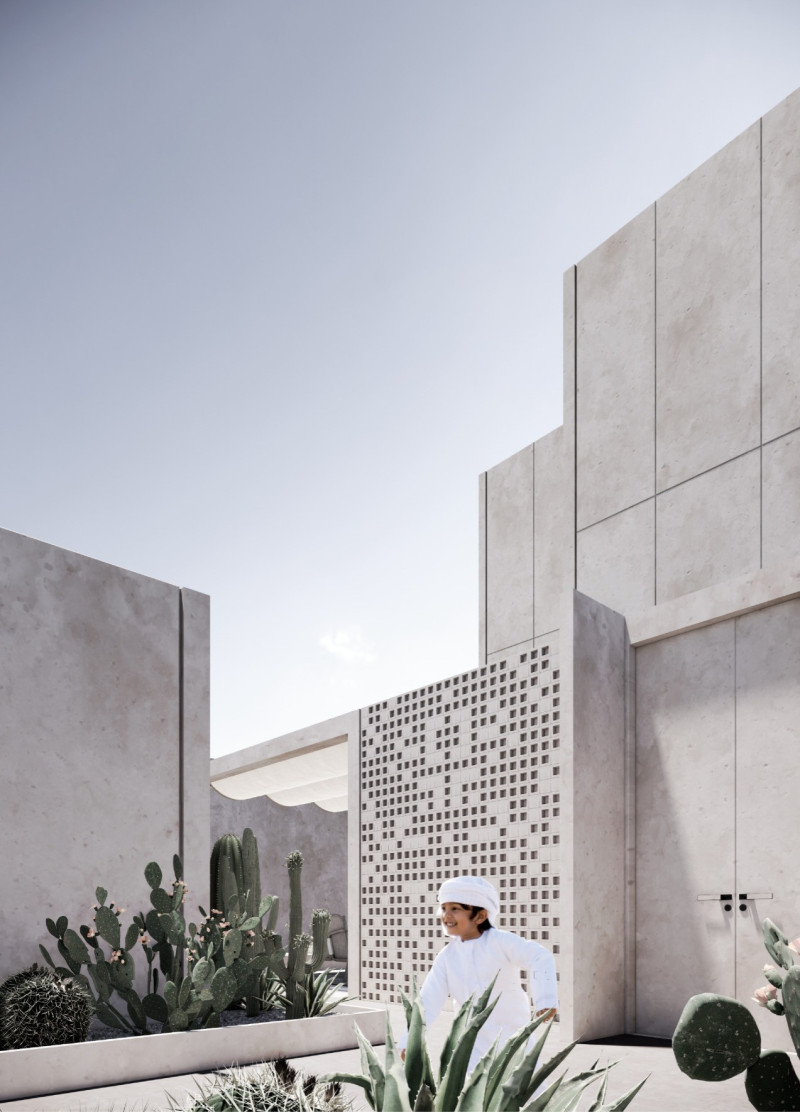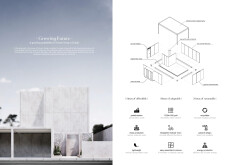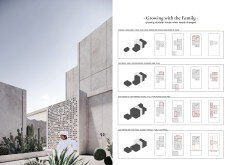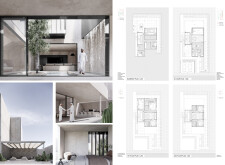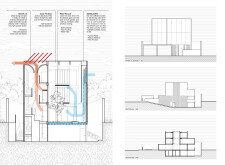5 key facts about this project
## Overview
Located in Dubai, the "Growing Future" project presents an innovative residential design that prioritizes adaptability and sustainability in response to the city's rapid urbanization and diverse cultural landscape. The project aims to provide flexible living solutions that can evolve with the changing needs of its inhabitants, utilizing modular design principles to allow for future reconfiguration and expansion.
## Spatial Strategy and Configurations
The spatial organization of "Growing Future" is characterized by a grid-based system that supports various configurations. Initial modules cater to small families or individuals, while expanded versions accommodate larger families or additional social spaces. Adaptive modules are designed to meet specific user requirements, such as accommodating aging relatives or young adults. This flexibility ensures the dwelling remains relevant throughout different life stages, enhancing user experience and comfort.
## Materiality and Sustainability
The material selection for this project plays a crucial role in both aesthetics and environmental responsibility. Foam concrete is employed for its lightweight properties and energy efficiency, while extensive use of glass promotes natural light and openness within living spaces. Additionally, the design incorporates recyclable materials to reduce environmental impact. Landscaping integrates local flora such as cacti, which thrive in Dubai’s climate and contribute to habitat creation, further supporting sustainability through reduced irrigation needs. Advanced sustainability technologies, including systems for air filtration and water recycling, illustrate a commitment to resource management without compromising on design.


